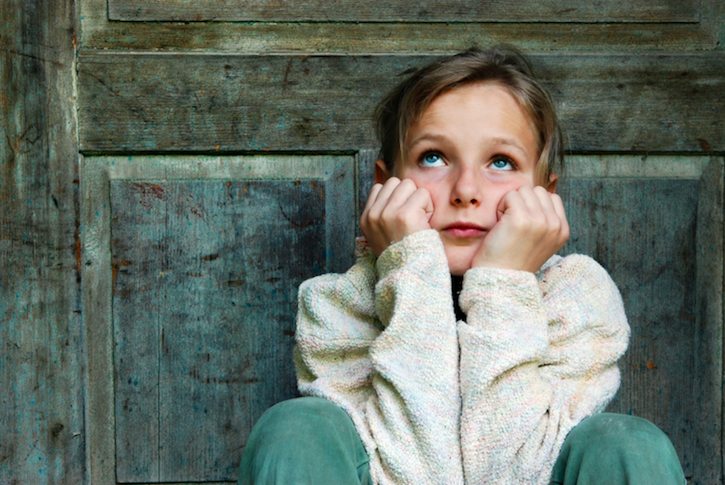I have a 12 year old daughter who is terrible to her younger brother and sister: putting them down, humiliating them around friends, and making fun of everything from their voice to their clothes. She calls them “Loser,” and “Idiot.” She says things about how kids at school think they’re stupid, or ugly. I see the hurt in their eyes, especially in the younger one who is starting to feel very insecure. I know middle school has been a hard adjustment for my oldest, but should I let them work things out on their own? How do you know when something is normal sibling rivalry and when it crosses a line?
Teasing and sparring between siblings is normal. In fact, the tussle and tumble of life with brothers and sisters is one of the ways that children build a thicker skin. But there is normal sibling rivalry — fussing over who gets to sit by the window or takes the last piece of cake — and there is behavior that is deliberately cruel.
It is our job to create a home for our children that feels safe to everyone — physically and emotionally. Look at the intention behind your older daughter’s unkind behavior. If it appears that she means to harm her siblings physically or emotionally, it is time to intervene.
When a child is delivering unkind treatment toward others, it can often be a masked cry for help. I would not look the other way and leave your children to work things out on their own. This situation needs attention.
But I would caution you to avoid using punishment as a solution. It may be tempting to threaten to take away your older daughter’s phone or deny her time with friends, I am a firm believer in addressing problems at their root.
When children are consistently behaving unkindly, they are hurting. While the younger siblings may be annoying her, it’s likely that the intensity of her unkindness toward them is fueled something else.
It could be that she’s struggling in school — academically or socially. It may be that hormones are making her feel a discomfort in her own skin that she’s taking it out on the younger kids. Or it could be something else altogether.
Spending one on one time with her in a relaxed way where you listen without scolding her or giving unwanted advice may help you get to the bottom of what is going on.
Make sure you also spend time with the younger children to let them offload what it’s been like to be on the receiving end of their sister’s meanness. Simply bearing witness to what’s going — without treating them as victims — can be a relief to a child who is internalizing a sibling’s mean behavior.
I would also urge you to host a family meeting. (For wonderful guidelines on putting these together, please tune in to Amy McCready’s interview in my Raising Siblings summit. She lays out a plan that covers every aspect of hosting great family meetings.)
In your weekly meetings, start by letting each person say something kind about every other member of the family. Your kids may initially roll their eyes — especially the older one who may complain that she can’t find a nice thing to say about her annoying brother and sister! Be patient, and start slowly.
Create space for grievances to be aired each week so resentments don’t build up. Share your family values are so that clear parameters are in place for the kinds of communication that do and do not fit in with the climate you want to establish in your home.
You may even want to write out a Mission Statement as a group activity that solidifies your family’s commitment to creating a safe haven for everyone in your home. “We use words that lift up, rather than put down.” “When we’re frustrated with each other, we talk about behavior rather than using labels like ‘Loser’.”
But again, don’t overlook whatever root cause is compelling your oldest to deliberately hurt her younger siblings — even if they are doing things that aggravate her, there is “Don’t come in my room without knocking!”, which is normal, and there is “Everyone in school hates your guts and laughs about you behind your back!” which crosses a line.
Normal sibling rivalry is a fact of life and in fact, a wonderful hotbed for children to learn how to negotiate, share, and advocate for themselves. Teasing and bickering are to be expected, and are no cause for parents to intervene. But when that line is crossed and there is a deliberate attempt to harm a brother or sister’s body or spirit, it is time to step in.
For a wealth of free advice on Raising Siblings with less drama and more joy, please join me and an exceptional lineup of speakers for the free Raising Siblings summit October 17th-19th. You can register right here.
Originally published at journal.thriveglobal.com


